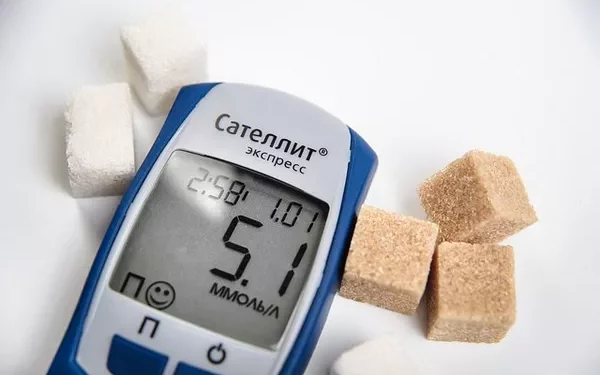Type 2 diabetes mellitus (T2DM) is a chronic metabolic disorder characterized by insulin resistance and relative insulin deficiency, leading to elevated blood sugar levels. Effective management of blood glucose is paramount in reducing the risk of complications associated with diabetes, such as cardiovascular disease, neuropathy, nephropathy, and retinopathy. This article aims to explore comprehensive strategies for controlling blood sugar levels in individuals with type 2 diabetes, encompassing lifestyle modifications, pharmacotherapy, and emerging therapeutic approaches.
Understanding Blood Sugar Control in Type 2 Diabetes
In type 2 diabetes, the body either does not produce enough insulin or becomes resistant to the insulin produced, resulting in impaired glucose uptake by cells and elevated blood glucose levels (hyperglycemia). The cornerstone of diabetes management revolves around achieving and maintaining near-normal blood sugar levels to prevent acute complications (e.g., hyperglycemic crises) and long-term complications (e.g., diabetic nephropathy, neuropathy, and retinopathy).
Lifestyle Modifications
1. Dietary Strategies
A balanced diet is crucial for managing blood sugar levels in type 2 diabetes. Key dietary recommendations include:
- Carbohydrate Counting: Monitoring carbohydrate intake to maintain consistent blood sugar levels.
- Glycemic Index (GI): Choosing low-GI foods to minimize postprandial glucose spikes.
- Meal Timing: Spacing meals evenly throughout the day to avoid large fluctuations in blood sugar.
- Portion Control: Moderating portion sizes to manage caloric intake and weight.
2. Physical Activity
Regular physical activity improves insulin sensitivity, facilitates glucose uptake by muscles, and contributes to weight management. Recommendations include:
- Aerobic Exercise: Engaging in activities such as walking, jogging, or cycling for at least 150 minutes per week.
- Resistance Training: Incorporating exercises using weights or resistance bands to build muscle mass and improve insulin action.
3. Weight Management
Obesity and excess body weight exacerbate insulin resistance and increase the risk of complications in type 2 diabetes. Strategies for weight management include:
- Caloric Restriction: Creating a calorie deficit through diet and exercise.
- Behavioral Modifications: Adopting sustainable lifestyle changes to support long-term weight loss.
- Bariatric Surgery: Considered in severely obese individuals to achieve significant weight loss and improve glycemic control.
Pharmacotherapy
1. Oral Antidiabetic Medications
Various classes of oral antidiabetic medications target different aspects of glucose metabolism:
- Metformin: Improves insulin sensitivity and reduces hepatic glucose production.
- Sulfonylureas: Stimulate insulin secretion from pancreatic beta cells.
- DPP-4 Inhibitors: Inhibit degradation of incretin hormones, enhancing insulin secretion and suppressing glucagon.
- SGLT-2 Inhibitors: Block glucose reabsorption in the kidneys, leading to increased urinary glucose excretion.
2. Injectable Therapies
For individuals requiring insulin or other injectable agents:
- Insulin Therapy: Mimics physiological insulin secretion to regulate blood sugar levels.
- GLP-1 Receptor Agonists: Stimulate insulin secretion and inhibit glucagon release, promoting satiety and weight loss.
3. Combination Therapy
Combining medications from different classes can enhance efficacy and address multiple pathophysiological mechanisms underlying type 2 diabetes.
Monitoring and Self-Care
1. Blood Glucose Monitoring
Regular monitoring of blood sugar levels provides valuable insights into the effectiveness of diabetes management strategies. Techniques include:
- Self-Monitoring: Using glucometers to measure blood glucose levels at home.
- Continuous Glucose Monitoring (CGM): Providing real-time glucose readings and trends, aiding in treatment adjustments.
2. Diabetes Education and Support
Patient education is essential for fostering self-management skills and adherence to treatment plans:
- Nutritional Counseling: Guidance on meal planning, carbohydrate counting, and label reading.
- Self-Care Practices: Educating patients on recognizing and managing hypoglycemia and hyperglycemia.
Emerging Therapeutic Approaches
1. Personalized Medicine
Advances in genetic testing and precision medicine aim to tailor treatment strategies based on individual genetic profiles and metabolic characteristics.
2. Artificial Pancreas Systems
Closed-loop systems integrate continuous glucose monitoring with insulin delivery, providing automated adjustments to insulin doses based on real-time glucose readings.
3. Stem Cell Therapy
Research into using stem cells to regenerate pancreatic beta cells holds promise for restoring insulin production in individuals with type 2 diabetes.
Integrative Approaches and Complementary Therapies
1. Herbal Supplements
Some herbal supplements, such as bitter melon, cinnamon, and fenugreek, have shown potential in improving blood sugar levels. However, evidence supporting their efficacy and safety is limited.
2. Mind-Body Therapies
Stress management techniques, mindfulness practices, and relaxation therapies can complement conventional diabetes management by reducing stress hormones that can elevate blood glucose levels.
Challenges and Considerations in Blood Sugar Control
1. Adherence to Treatment
Achieving long-term glycemic control requires consistent adherence to lifestyle modifications and medication regimens.
2. Individual Variability
Responses to treatment can vary widely among individuals due to genetic factors, lifestyle factors, and comorbidities, necessitating personalized approaches to diabetes management.
3. Psychosocial Factors
Addressing psychosocial aspects such as depression, anxiety, and socioeconomic factors is crucial for holistic diabetes care.
See also: What Is The Most Common Medication For Diabetes
Conclusion
Effective management of blood sugar levels in type 2 diabetes requires a multifaceted approach encompassing lifestyle modifications, pharmacotherapy, and patient education. By integrating these strategies and embracing emerging therapeutic approaches, healthcare providers can empower individuals with type 2 diabetes to achieve optimal glycemic control, reduce the risk of complications, and enhance overall quality of life.
In summary, the journey towards controlling blood sugar levels in type 2 diabetes is a dynamic and collaborative effort between healthcare professionals and patients, emphasizing personalized care and continuous support to achieve long-term health outcomes.
Related topics:
What alcoholic drinks can people with type 2 diabetes drink?

























